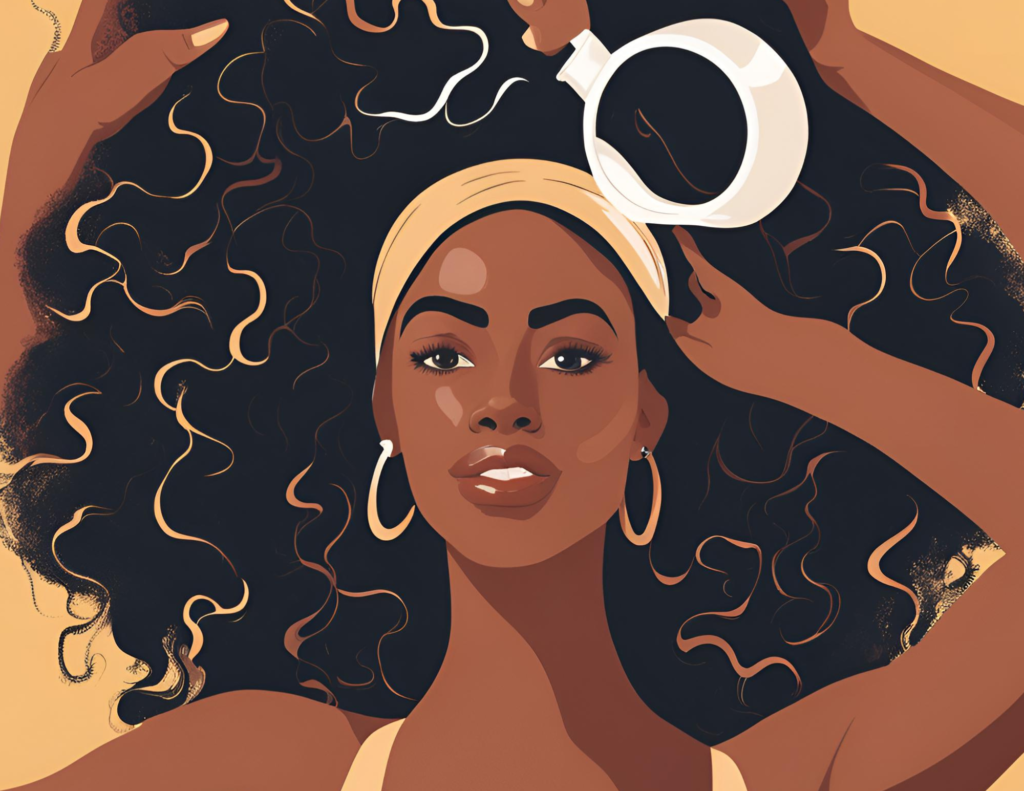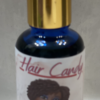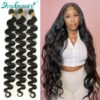How Often Should You Shampoo Your Hair? The Ultimate Guide
Table of Contents
ToggleHow Often Should You Shampoo Your Hair? The Ultimate Guide for Healthy Locks
We all want luscious, healthy hair, but it seems like every hair care guru has a different opinion on the best routine. Let’s settle this debate once and for all. Whether you’re a beauty enthusiast, a hair care aficionado, or just health-conscious, understanding how often to shampoo your hair is crucial. In this post, we’ll explore the various factors that influence your shampooing routine and provide you with practical tips to keep your locks looking fabulous.
The Shampooing Dilemma
There’s a lot of conflicting advice out there regarding how often you should wash your hair. Some say daily shampooing is the way to go, while others swear by a once-a-week regimen. The truth is, the right frequency depends on multiple factors including your hair type, lifestyle, and even the products you use.
Understanding Your Hair Type
Your hair type is the foundation of your shampooing routine. Let’s break down the main categories:
Oily Hair
Oily hair tends to get greasy quickly due to overactive sebaceous glands. If you fall into this category, you might need to shampoo more frequently, perhaps even daily. However, be cautious—over-washing can sometimes lead to even more oil production as your scalp tries to compensate for the dryness.
Dry Hair
Dry hair lacks sufficient natural oils, making it more prone to frizz and breakage. If your hair tends to be on the drier side, less frequent washing is advisable. Aim for once or twice a week to retain essential moisture.
Normal Hair
Congratulations if you have normal hair! You have the flexibility to shampoo every 2-3 days without major concerns. This balance helps maintain your hair’s natural oils while keeping it clean.
Lifestyle Factors
Your daily activities also play a significant role in determining how often you should shampoo.
Active Lifestyle
If you’re someone who hits the gym regularly or engages in outdoor activities, you’ll likely need to wash your hair more often. Sweat and dirt can accumulate on your scalp, necessitating more frequent cleansing.
Urban Living
City dwellers may find their hair gets dirtier faster due to pollution. If you live in an urban environment, consider washing your hair every other day to keep it fresh.
Stress Levels
Believe it or not, your stress levels can impact your hair’s health. High stress can lead to scalp issues like dandruff, which might require a specialized shampooing routine.
The Role of Hair Products
What you put in your hair matters just as much as how often you wash it.
Heavy Styling Products
Using gels, mousses, or heavy conditioners can lead to buildup on your scalp. If you’re a fan of these products, you may need to shampoo more frequently to remove residue.
Natural Hair Products
Opting for natural and sulfate-free products can be gentler on your scalp and hair. These products often require less frequent washing as they don’t strip your hair of essential oils.
Specialized Shampoos
Anti-dandruff shampoos, volumizing shampoos, and other specialized products often come with their own set of instructions. Stick to the recommendations to get the best results.
Seasonal Changes
Your shampooing routine may need to change with the seasons.
Winter Care
Cold weather can make your scalp dry and flaky. In winter, aim to shampoo less frequently and use a hydrating conditioner to keep your scalp moisturized.
Summer Care
In summer, your scalp might produce more oil due to the heat. During this time, you might need to shampoo more often, especially if you’re spending a lot of time outdoors.
The Benefits of Scalp Health
Your scalp is the foundation of healthy hair. A clean, well-maintained scalp promotes hair growth and reduces issues like dandruff.
Exfoliation
Regular exfoliation can help remove dead skin cells and product buildup. Consider using a scalp scrub once a week for optimal scalp health.
Massage
A good scalp massage can stimulate blood flow, promoting hair growth. Make it a habit to massage your scalp gently during each wash.
Moisturizing
Just like your hair, your scalp needs moisture. Use a lightweight oil or a hydrating serum to keep your scalp balanced.
Debunking Shampoo Myths
Let’s clear up some common misconceptions about shampooing.
Myth 1: Shampooing Daily is Harmful
While it’s true that over-washing can strip your hair of natural oils, daily shampooing isn’t necessarily harmful if you use a gentle, sulfate-free shampoo.
Myth 2: You Should Never Use Conditioner on Your Scalp
Conditioner can actually benefit your scalp by providing necessary moisture. Just make sure to rinse thoroughly to avoid buildup.
Myth 3: Switching Shampoos Frequently is Bad
Variety can be good. Different shampoos offer different benefits, so switching them up can address multiple hair concerns.
DIY Dry Shampoo
For those days when you can’t wash your hair, dry shampoo can be a lifesaver.
Ingredients
You can make your own dry shampoo using simple ingredients like cornstarch or cocoa powder (for darker hair).
Application
Apply the powder to your roots and brush through to absorb excess oil.
Benefits
Using dry shampoo can extend the time between washes, keeping your hair looking fresh without over-washing.
Expert Tips for Every Hair Type
Here are some pro tips tailored to your specific hair type.
For Oily Hair
- Use a clarifying shampoo once a week to deep-clean your scalp.
- Avoid heavy conditioners; opt for lightweight, volumizing formulas instead.
- Rinse your hair with cool water to help close the hair cuticles and reduce oil production.
For Dry Hair
- Incorporate a deep conditioning treatment into your routine once a week.
- Use a leave-in conditioner to keep your hair hydrated throughout the day.
- Avoid heat styling tools as much as possible to prevent further drying out your hair.
For Normal Hair
- Maintain a balanced diet rich in vitamins and minerals for optimal hair health.
- Use a mild, sulfate-free shampoo to keep your hair clean without stripping essential oils.
- Experiment with different hairstyles to reduce mechanical stress on your hair.
Conclusion
Shampooing your hair is not a one-size-fits-all routine. The frequency with which you should wash your hair depends on a variety of factors, including your hair type, lifestyle, and the products you use. By understanding these elements, you can tailor a shampooing routine that keeps your hair healthy and beautiful.
Remember, the goal is to find a balance that keeps your hair clean while maintaining its natural oils. And if you’re still unsure, why not book a consultation with a hair care expert? They’ll provide personalized advice to help you achieve your hair goals.
Happy shampooing!








